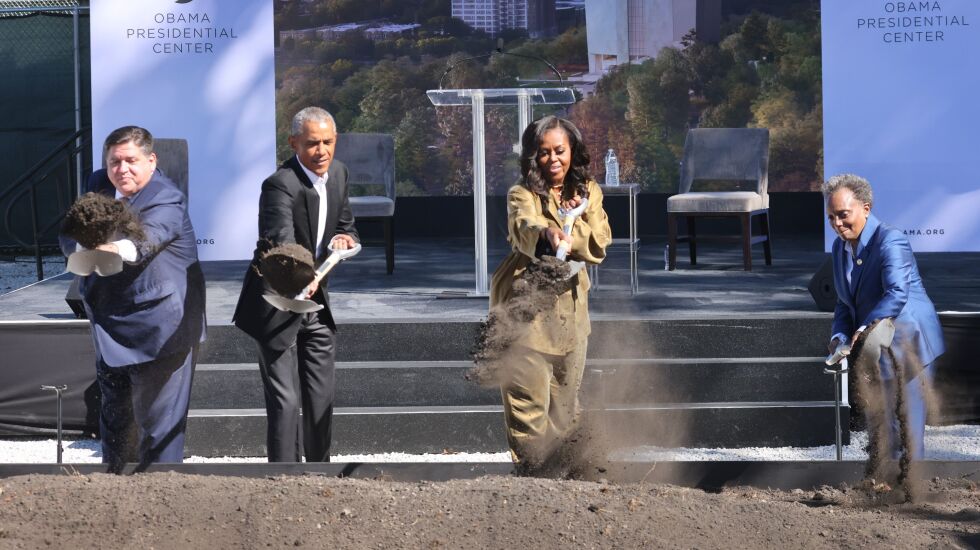
A few weeks back, I rode Metra into the city to accomplish several errands. One of them was to visit Wooded Island, behind the Museum of Science and Industry in Jackson Park. It had been a year-to-the-week since I had last been there.
For about two years, I lived a 20-minute hike away from Wooded Island, and several mornings a week, I’d head there at sunrise with my binoculars to spend a few hours with the flora and fauna. Wooded Island offers an escape from the noise and mayhem of the city, a place conducive to deep thoughts.
After leaving Union Station, I hustled along Jackson Boulevard towards State Street to catch a southbound #6 Hyde Park Express bus. Although downtown seemed to have regained some of its buzz, the homeless, with their cardboard pleas for help, appeared to occupy every other street corner.
Despite blue skies and golden sunshine, I felt odd, as if I were on the verge of deja vu. Some 15 minutes later, when I exited the bus at 57th Street and Stony Island Avenue, I saw a woman sitting in the bus shelter there.
She seemed to be in her 50s, and while it was a warm, humid morning, she was wearing a long, quilted coat. Next to her were several laundry carts filled with what I took to be the totality of her possessions, and I wondered if she were the same woman I saw there a year ago. Deja vu.
After shouldering my rucksack, which seemed to have grown heavier, I crossed Stony Island and then Cornell Drive. Walking towards Wooded Island, my attention was diverted by the construction site for the Obama Presidential Center, directly across from my destination. A chain-link fence surrounds the now-treeless site, while two latticed-structured tower cranes loom high above it like mechanical sentinels.
I meandered at Wooded Island for just over an hour. After lingering at the Japanese Garden and its pagoda, reveling in the green hush there, I looked for and found specimens of some of my favorite native plants, such as a tall, robust, sunflower-like plant called Indian cup, just to name one.
All in all, the place is a sanctuary for native species and those who cherish them.
I was about to leave when I realized I wasn’t alone. There were three young men cautiously walking towards me. They were in their late 20s to early 30s, gaunt, and they looked scruffy, in dirty T-shirts and athletic pants.
I quickly realized that I had taught younger versions of them back in the late 1980s, and then in the early 2000s, mostly in remedial writing classes that no one else wanted to teach. Though they hadn’t had the benefit of rigorous writing instruction before, those students were generally good-natured, funny, and often insightful, despite the tough circumstances in which they were growing up. I decided I had nothing to worry about, and I was right.
As we passed each other, we exchanged nods of silent greeting. And then that sense of deja vu returned. The year before, there also had been three young men hanging out amid the greenery.
Leaving Wooded Island, I glanced back at the site of the future Obama Center. What work was being done there? When would the project be finished? Would it really bring about the economic revival of the South Side as promised? And when, and for whom?
As I ran my other errands, I mostly thought of the people I encountered that morning.
America is always ready to help those in need. As a nation, we have taken in and aided refugees from Afghanistan and Ukraine. So too for the recent busloads of asylum seekers from across the southern border, sent to our city by Texas Gov. Greg Abbott because Chicago has declared itself to be a sanctuary city.
I have often wondered, though, whether we forget to help our own, our native sons and daughters, or are they nothing more than invisible men and women?
Projects such as the Obama Center are always about some golden future time, and they’re built on promises, wishes, and hopes. The homeless on Jackson Boulevard, the woman at the bus shelter and the young men on Wooded Island — as well as too many other Americans — can’t wait for some golden future to arrive. They need food and shelter, work and health care now.
Whether our political leaders understand this, and can deliver on their seemingly endless promises, remains to be seen.
John Vukmirovich is a Chicago-area writer and book reviewer.
The Sun-Times welcomes letters to the editor and op-eds. See our guidelines.







